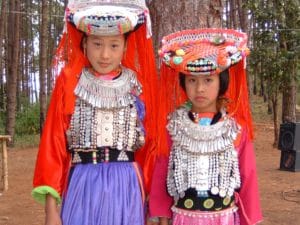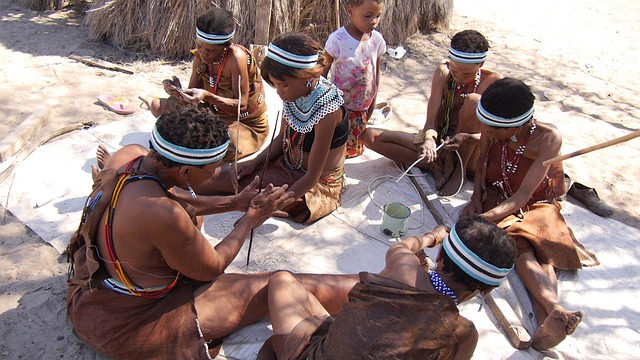One of the important aspects of a growing movement is that it becomes indigenous. Disciples are free to live out the gospel message in a contextual way. What does the word indigenous mean and how can we contextualize without going too far?
Miriam Webster defines indigenous as: produced, growing, living, or occurring naturally in a particular region or environment. We speak of indigenous plants, indigenous people, indigenous culture. What we mean by indigenous Disciple Making Movements (DMMs) is that within these movements disciples grow naturally in their own context and culture.
How Much Should We Focus On Contextualization?
Most people agree that indigenous movements grow faster than when we import culture and traditions from outside. Across the board, cross cultural church planters accept this, at least in theory.
A key question is the degree to which we focus on indigenization (or contextualization) as we pursue a DMM. What follows in this blog may be controversial or offensive to some people. Please forgive me ahead of time and hear me out. Feel free to comment about what you agree or disagree with. I won’t be offended and maybe we can learn together!
I have seen both sides of the spectrum of contextualization efforts and emphasis. Try to stay in the middle, not getting out of balance either way.

Some People Don’t Adapt To Culture Much At All
On one side of the spectrum are people who don’t care much about adapting their methods, tools and efforts to the local culture. They don’t take the time to research and understand the people they are trying to reach. Without thought, they impose models from other countries rather than adapting them to fit the worldview of those they are reaching. Some rely on miracles and power encounters to see people saved, but don’t concern themselves much with deeper level culture and worldview change taking place.
While sometimes getting quicker fruit than those who take time to learn the language and understand culture more deeply, these church planting efforts stay shallow and have minimal community impact. These groups don’t attract the key influencers of society, but mostly reach fringe (rather than core) people in the unreached group. As a coach, I encourage these disciple makers to go deeper. They need to adapt more, learn the language and worldview better, and work to reach not only people on the fringes, but also to share good news with those who others in that society respect. As core people in the community come to faith, the potential for massive growth and transformation is much, much greater.
Some People Spend Too Much Energy On Contextualizing
On the other side, I have seen many examples of people who are deeply committed and extremely passionate about contextualization. They work hard to adapt every tool, method and word they speak to fit the Buddhist, Hindu, or Muslim mindset. Fear of making mistakes in their communication of the gospel and causing offense is common for this group. They are so focused on not creating barriers to the gospel that they don’t actually share the gospel very clearly. Letting the gospel speak for itself, even if it is a stumbling block to some, is thought to be “a bit foolish.”
Paul said that for some people the message of the gospel would be nonsense!
1 Cor 1:18 “For the message of the cross is foolishness to those who are perishing, but to us who are being saved it is the power of God.”(NIV)
People on this side of the spectrum, think that the key to seeing a Disciple Making Movement is contextualizing enough. Their commitment to contextualization sometimes seems higher than their commitment to see the lost saved and to see multiplying churches.
Such a deep commitment to the strategy of contextualization can cause hesitation to honestly evaluate the fruitfulness of their methods and strategies. Some contextual zealots refuse to even listen to the ideas of fruitful indigenous workers. These nationals are not as contextual as they think everyone should be. This attitude is dangerous and ineffective when it comes to the goal of seeing a DMM in an unreached group take place.
This article kind of opens the proverbial can of worms here and perhaps makes people on both sides upset. My intention is not to make anyone upset, but to advocate for a balanced approach to the issue of contextualization.
It is important, vitally important, that we adapt what we do to fit the context, language and culture! We must be extremely careful about imposing outside ways of doing things (be they Western or from somewhere nearby but still not indigenous to that place and people). At the same time, we need to be careful that we don’t start to think that contextualization is the only or even the main key to seeing a movement start. There are many other things we need to also consider and emphasize too. Things like: abundant seed sowing, prayer, finding people of peace, participatory worship, training trainers, indigenous giving, etc. are necessary too.
Be contextual and work hard to understand and adapt to those you want to reach. Contextual zealots, on the other hand, see only one thing as the key to starting movements. Avoid this! Listen and learn from fruitful indigenous workers around you. They have much to teach us. This approach will bring much fruit.




Comments
Well said. Thank you
We are on coastal ecuador learning spanish ( painfully slow). Thankfully the slow process of language learning has given us the ability to learn culture before forcing a western context of church on the people here. We gave make friends and build relationships here we wouldn’t if we didn’t have this language barrier first. Learning culture is key. God timing is not ours but it’s the best. Thank you for your work and encouragement. Mark Pelletier, serving with my family in don juan jama manabi ecuador
David Watson in his book advocates for something different than contextualization and that is deculturalization. He says contextualization is when the missionary decides how to apply the indigenous culture to the practices of the Bible. He says that even when missionaries think they have contextualization correct, they still miss things and get things wrong, because it is difficult to totally understand a culture that you didn’t grow up in. In deculturalization, we don’t decide how to contextualize things, but rather make sure we get out of the way, (don’t introduce our culture) and defer to the indigenous person on how they think church, fellowship, prayer, etc. should be done. They will naturally do things the way that makes sense to them. We simply show them what the Bible says and let them determine how to put it into practice. In other words, it is the indigenous people who contextualize the gospel and Church culture rather than the foreign missionary.